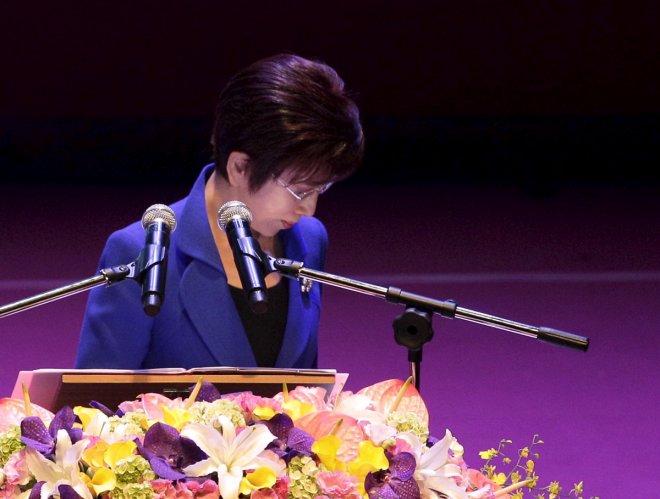
The leader of Taiwan's pro-China Kuomintang party met President Xi Jinping on Tuesday and reaffirmed KMT's commitment to adhere to the 1992 Consensus that endorses the one-China principle.
The Taiwan opposition leader also put on the table the possibility of putting in place a peace agreement between the two sides. KMT Chairperson Hung Hsiu-chu, who became the leader of the Nationalist Party in March this year, told Xi that her party will uphold their mission to promote "positive energy" across the Straits, the Global Times reported.
China-Taiwan relations have been on the wane ever since pro-independence Democratic Progressive Party (DPP) led by Tsai Ing-wen took power in January.
President Xi said the 1992 resolution was the key to resolving the cross-straits tensions."To ensure national integrity and protect the fundamental interests of the Chinese nation is the common will of all Chinese people," Xi said.
Hung is widely seen as a supporter of unification with China, but she faces a tall task of rebuilding her party's support along Taiwanese people. The widespread anti-China protest in 2014 -- known as the Sunflower Movement -- that followed the signing of a trade pact with the mainland increased the support for DPP.
China considers Taiwan an integral part of the mainland. Hung's Kuomintang party once ruled the mainland before they were vanquished by the Communist Red Army following a civil war after the end of the World War 1.
Beijing says the self-ruled Taiwan is a renegade province and has affirmed it may use force if necessary, to retake and annex the island.
Over the years, China has all but obliterated the diplomatic existence of Taiwan. Using its financial muscle power and defence clout, Beijing won over many countries that had earlier recognized Taiwan. China, a permanent UN Security Council member, has about 170 diplomatic allies while Taiwan has only, 22, most of which are marginal forces.









